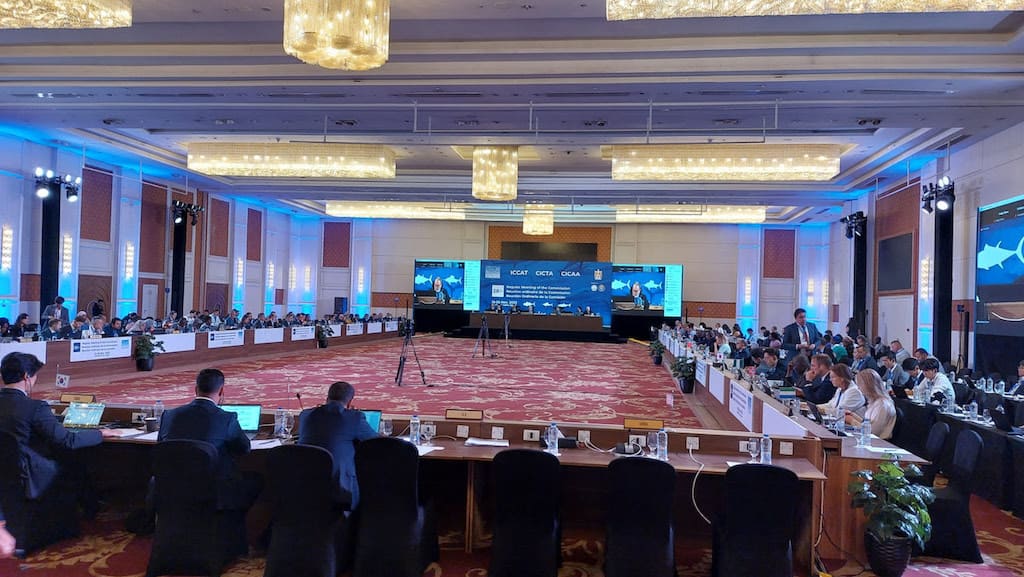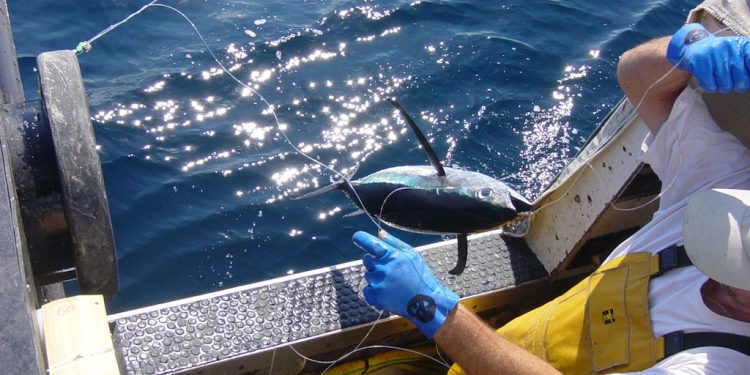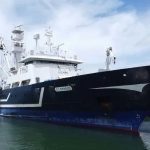At its meeting in Cairo, ICCAT adopted a TAC of 47,250 tonnes for North Atlantic albacore tuna – an increase of 25%. However, there was a failure to reach agreement on bigeye tuna management and the decision was for a rollover quota, while Japan vetoed the EU Proposal for an obligation for all shark catches to be landed with fins attached.
Commenting on the outcome for albacore tuna, Europêche managing director Daniel Voces commented that ‘this is good news for the European fleet and the result of our fishers’ unwavering dedication in adhering to and implementing strict regulations.’
Europêche president Javier Garat criticised the decision taken on North Atlantic blue shark, with the TAC cut by 23% (from 39,000 to 30,000 tonnes), despite the fact that the stock not being overfished and or overfishing occurring.

‘This decision will add unjustified burden to the EU fishing industry, which has made significantly more efforts than other fleets in reducing fishing effort while increasing reporting and monitoring at sea. As always, they will endure the consequences of strict management while other fleets will continue business as usual. We hope this changes now,’ he said.
He commented that European fishermen have been applying a ban on shark finning since 2003, and Japan’s continued opposition to this comes as a disappointment.
‘I note with satisfaction the growing number of co-sponsors on this conservation measure year on year, discussions have been on-going for 15 years now; it is time to approve the fins attached policy to guarantee the ban on shark finning,’ he said.
For bigeye tuna, while the stock evaluation indicated an opportunity to increase the TAC to 75,000 tonnes, corresponding to a 64% probability of remaining in the green quadrant of the Kobe matrix, the parties opted for a more cautious approach by adopting a roll-over at 62.000 tons until a new allocation is determined.
‘It is paramount to adopt a new allocation scheme ensuring both the possibility for developing countries to benefit from quota increases, and a certain stability for existing fleets, like the EU purse seine fleet which contributes to the local economies through fisheries agreements, use of port facilities and plants supply,’ said Xavier Leduc, president of Europêche Tuna Group.
‘While this would be perfectly possible with a potential increase of the TAC increased and the redistribution of unused fishing opportunities, Japan is reluctant to redistribute its long-term unused catch quotas to developing states. We hope that the working group on allocation will facilitate progress on this matter. We also hope that next year, ICCAT’s Commission will seize the opportunity to raise observer coverage on longliners, which are limited to 10% while purse seiners are 100% observed, and to ban at sea transhipments.’
‘It is important for ICCAT to keep improving its compliance process and to avoid rewarding with additional fishing opportunities contracting parties (CPCs) involved in recurrent over-catch and poor compliance records unless they show a strong commitment to revert the situation and provide proof of improvement,’ commented Anne-France Mattlet, director of Europêche Tuna Group.









